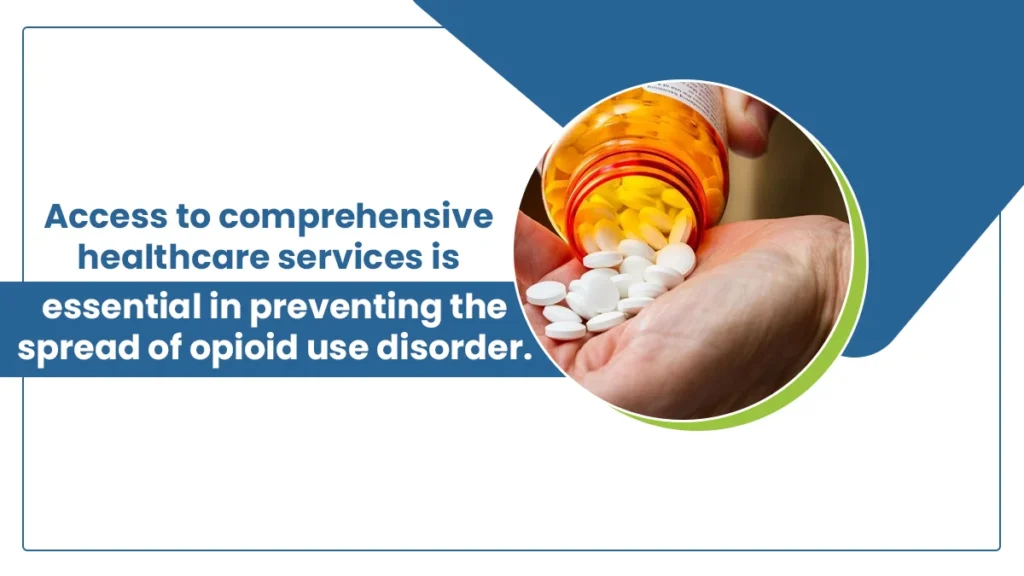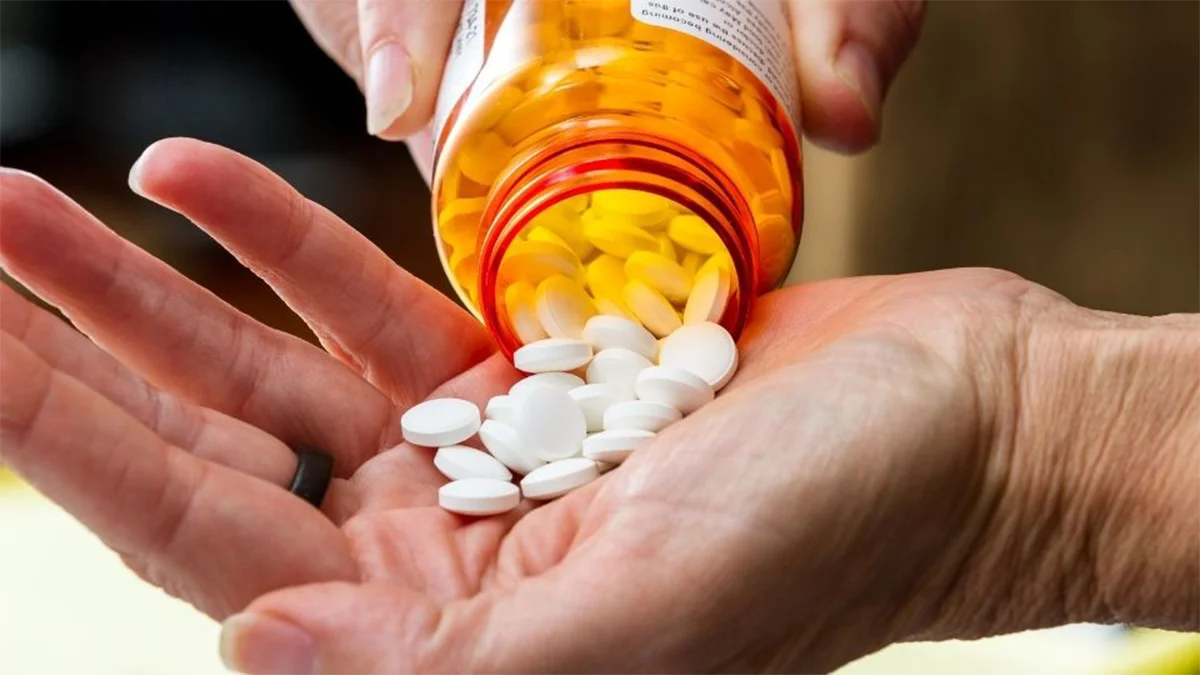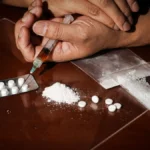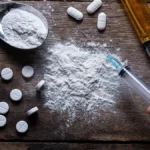Opioids, such as prescription painkillers or illicit substances like heroin, act on the brain’s receptors, inducing pain relief and euphoria. However, prolonged use leads to tolerance, dependence, and addiction.

The consequences are profound, including respiratory depression, overdose, infectious diseases (like HIV and hepatitis), mental health disorders, and social consequences. Recognizing the complex interplay between opioids and health is crucial for addressing this epidemic and formulating effective prevention and treatment strategies.
Key Takeaways
Opioid addiction affects individuals of all ages and backgrounds, burdening healthcare systems and communities worldwide.
- Opioids are known for their powerful pain-relieving properties but are highly addictive, even when prescribed by a healthcare professional.
- Long-term opioid use can lead to physical dependence, where individuals experience withdrawal symptoms when trying to reduce or stop their medication.
- Opioid addiction poses serious health risks, including the potential for overdose, coma, and death.
- Access to comprehensive healthcare services is essential in preventing the spread of opioid use disorder.
If you’re seeking help, contact The Haven Detox Little-Rock at (501) 271-3342 to receive professional assistance and gain long-term sobriety.
Physical Impacts of Opioid Addiction
Opioid addiction can have severe physical impacts on the body. Following are some of the common physical consequences associated with long-term opioid addiction:
Consequences on the Brain: Opioid addiction significantly alters the brain’s structure and function. Prolonged opioid abuse can lead to changes in the brain’s reward system, impairing its natural ability to experience pleasure.
This can result in anhedonia, where individuals struggle to find joy in activities unrelated to drug use. Furthermore, opioids can disrupt the brain’s delicate balance of neurotransmitters, such as dopamine and serotonin, which regulate mood, motivation, and emotions.
These alterations can increase anxiety, depression, and overall emotional instability.
Impact on Heart: Opioid addiction poses grave risks to cardiovascular health. The drugs can depress the respiratory system, causing slow and shallow breathing, reduced oxygenation, and even respiratory failure. Opioids also directly affect the heart, slowing the heart rate and decreasing blood pressure.
Continued misuse can lead to heart rhythm abnormalities, such as arrhythmias, which can be life-threatening. The increased risk of infections associated with opioid use, like endocarditis, further compounds cardiovascular complications.
Additionally, the lifestyle factors often associated with addiction, such as poor nutrition, lack of exercise, and high-stress levels, can contribute to the development of cardiovascular diseases.
Effects on GI Tract: Opioid overdose wreaks havoc on the gastrointestinal (GI) tract. One of the most common side effects is constipation, caused by opioids’ ability to slow down the movement of the intestines. Chronic constipation can lead to complications such as hemorrhoids, anal fissures, and bowel obstruction.
Opioid-induced bowel dysfunction can also disrupt the natural balance of gut bacteria, impair nutrient absorption, and compromise the immune system. In addition, opioid use can cause nausea, vomiting, and loss of appetite, leading to malnutrition and weight loss.
Recognizing Signs of Opioid Overdose
Recognizing signs of opioid overdose is crucial for prompt intervention and potentially saving lives. Common indicators include slowed or shallow breathing, pinpoint pupils, pale or clammy skin, and unresponsiveness, ranging from extreme drowsiness to complete unconsciousness.
Other symptoms may include confusion, gurgling or snoring, and bluish lips or fingertips. If you suspect someone is experiencing an opioid overdose, it is vital to act quickly. Call emergency services immediately and provide clear and concise information about the situation.
If available, administer naloxone, an opioid overdose reversal medication, following the instructions provided with the medication. Stay with the person until medical professionals arrive, monitor their breathing, and keep them awake if possible.
Remember, opioid overdose is a medical emergency, and timely response is crucial. Education on recognizing these signs, obtaining naloxone, and understanding the appropriate steps can empower individuals to respond effectively and potentially save lives in opioid overdose situations.
How to Use Narcan
Narcan, or naloxone, is a medication used to reverse opioid overdoses and save lives. Understanding how to use Narcan effectively is crucial in recognizing and responding to signs of opioid overdose.
Here are the key steps to using Narcan:
Assess the situation: Look for signs of an opioid overdose, such as shallow breathing, unresponsiveness, pinpoint pupils, or blue lips and nails. If you suspect an overdose, act quickly.
Call for help: Dial emergency services right away. Inform them about the situation and your intention to administer Narcan.
Prepare the Narcan nasal spray: Narcan is available as a nasal spray, making it easy to administer. Remove the device from its packaging and follow the instructions for assembly.
Administer the spray: Place the nozzle into one nostril of the unresponsive person and press the plunger firmly to release the medication. Repeat the process for the other nostril.
Observe and support: After administering Narcan, monitor the individual’s breathing and responsiveness. Continue providing any necessary first aid while awaiting medical professionals.
Remember, Narcan is not a substitute for emergency medical care. It is essential to seek professional help after administering Narcan to ensure the person’s well-being.
Signs and Symptoms of Opioid Addiction
If you suspect someone may be struggling with opioid addiction, there are several signs and symptoms to look out for. These can vary in severity and may include:
Physical Symptoms
Opioid addiction manifests various physical signs. Individuals may experience drowsiness, constricted pupils, slurred speech, and nodding off frequently. They might have track marks or scars from injecting drugs, suffer from respiratory issues, and exhibit changes in their weight and appetite.
Constipation, nausea, and sweating are also common physical symptoms.
Mental Health Symptoms
Opioid addiction can significantly impact an individual’s mental well-being. They may exhibit mood swings, irritability, and anxiety. Depression, a sense of hopelessness, and decreased motivation are also prevalent. Cognitive difficulties like poor concentration, memory problems, and impaired judgment may be apparent.
Individuals might engage in risky behaviors to obtain or use opioids, disregarding potential consequences. They may experience intense cravings and spend significant time thinking about opioids. Social withdrawal, neglecting responsibilities, and strained relationships are often observed.
It is crucial to recognize these signs and symptoms to identify opioid medicines dependence early and seek appropriate help and support for affected individuals.
Help for Opioid Addiction
Breaking free from opioid use disorder is challenging, but recovery is possible with the right support and treatment. Several effective methods are available to assist individuals in overcoming opioid addiction and reclaiming their lives.
Here are some key approaches that have shown promising results:
Detox
Detoxification is often the first step in treating opioid addiction. The detox process aims to rid the body of the drug and manage withdrawal symptoms. Detoxification can be done in different settings, including hospitals, specialized detoxification centers, or outpatient clinics.
Healthcare providers closely monitor individuals during detox to ensure safety and provide appropriate medical interventions to alleviate withdrawal symptoms. Medications may be prescribed to ease the discomfort of withdrawal and reduce cravings.
Inpatient Rehab
Inpatient rehabilitation programs offer intensive, structured treatment for individuals struggling with opioid addiction. These programs provide a supportive environment away from triggers and temptations, allowing individuals to focus solely on their recovery.
Inpatient rehab typically involves a combination of individual counseling, group therapy, educational sessions, and other evidence-based treatments. Trained professionals, such as doctors, therapists, and addiction specialists, guide individuals through their recovery journey, addressing the underlying causes of addiction and developing coping mechanisms.
The length of inpatient rehab can vary, ranging from a few weeks to several months, depending on individual needs and progress.
Behavioral Therapy
Behavioral therapy plays a crucial role in helping individuals overcome opioid addiction. Different approaches, such as cognitive-behavioral therapy (CBT) and contingency management, are commonly used. CBT helps individuals identify and change negative patterns of thinking and behavior associated with drug use.
It equips them with valuable skills to cope with cravings, manage stress, and handle triggers effectively. Contingency management, on the other hand, provides incentives for positive behaviors such as abstinence.
Behavioral therapy helps individuals develop healthier coping mechanisms, build resilience, and improve their well-being.
Support Groups
Support groups, such as Narcotics Anonymous (NA), play a significant role in the recovery process for individuals battling opioid addiction. These groups provide a safe and non-judgmental space where individuals can share their experiences, receive support, and learn from others who have faced similar challenges.
Support groups offer community and camaraderie, promoting long-term recovery and relapse prevention. Along with group meetings, individuals may also have access to mentors or sponsors who provide guidance and support throughout their recovery journey.
Additionally, support groups can offer valuable resources and information about addiction, treatment options, and strategies for maintaining sobriety.
Frequently Asked Questions (FAQs)
What are the long-lasting effects of opioid abuse?
The long-lasting effects of opioid abuse can include physical dependence, addiction, respiratory depression, liver damage, cognitive impairment, and increased risk of infectious diseases such as HIV and hepatitis. Additionally, patients may experience social, psychological, and financial consequences, strained relationships, and legal problems.
Overdose, which can lead to death, is another severe risk associated with illicit opioids. Early intervention and treatment are crucial to mitigate these harmful effects and promote recovery.
What are the most common health risks associated with opioid addiction?
Opioid addiction, a mental illness, poses serious public health problems and numerous health risks. Higher doses or abusing opioids, including prescription opioids and illicit drugs like fentanyl, can lead to substance use disorder, dependence, and overdose deaths. Opioid users are at risk of developing mental health issues, including permanent brain damage.
Chronic diseases may arise due to prolonged opioid use, and high doses can result in serious side effects. Family members are also affected by the consequences of opioid addiction. Medical supervision, substance abuse treatment, and access to healthcare providers are crucial in addressing this chronic brain disease and its associated characteristics.
Find Reliable Addiction Help at The Haven Detox-Little Rock
Discover a path towards lasting sobriety with The Haven Detox-Little Rock. Our trusted facility provides comprehensive addiction help tailored to your needs.
Experience our comprehensive addiction treatment services, where we combine various treatment modalities to address addiction’s physical, emotional, and psychological aspects. Begin your healing process in our safe and supportive detox program.
For a more structured approach, our residential facility offers a therapeutic community setting while ensuring ongoing care and support. Furthermore, our expert professionals utilize evidence-based therapies to help you develop coping strategies to overcome addiction’s challenges.
Take the first step towards a healthier tomorrow. Contact us at (501) 271-3342 to access reliable addiction help and begin your transformative journey with our expert team.




